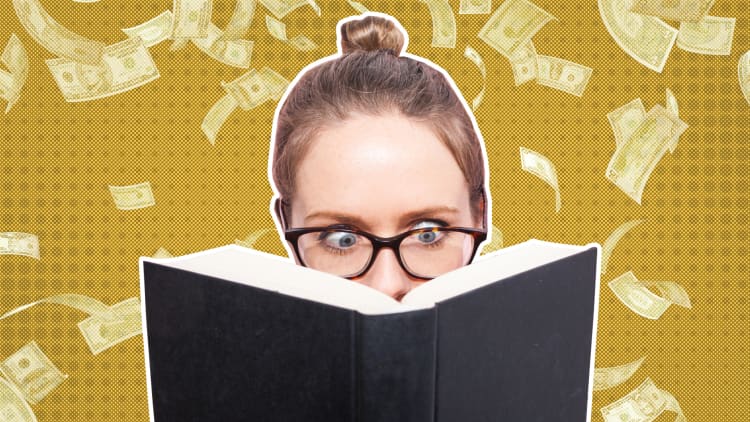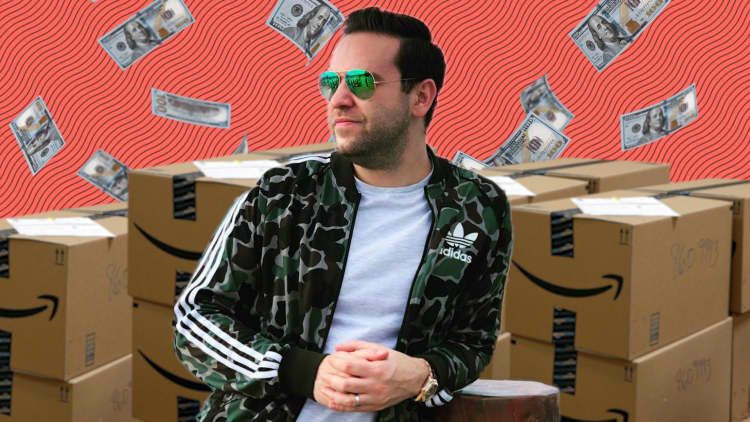If you've ever searched "best personal finance books to read" on Google, you've most likely seen the title "Rich Dad, Poor Dad" appear at the very top. The book, written by Robert T. Kiyosaki and Sharon L. Lechter, has reportedly sold more than 32 million copies in 40 languages across 40 countries since it was published in 2002.
"Rich Dad, Poor Dad" is an allegorical story about Robert Kiyosaki and his two dads, and how growing up with them shaped his financial views. The "poor dad" is Kiyosaki's biological father, a highly educated college professor. The "rich dad" is Kiyosaki's best friend's father, a wealthy entrepreneur who owns dozens of businesses. Both dads offer conflicting advice on money.
"Poor dad" mentality
"Poor dad" believes that one should work for money as a single-salaried employee at a stable job, and that a person's wealth largely depends on their family background. He believes that the most important things you can do to financially survive (or accumulate wealth) is to read and learn from successful people. Many people think this mentality can trap a person into working a job they don't love, but is willing to stick with because they have to pay the bills.
"Rich dad" mentality
"Rich dad" advises Kiyosaki to get a job so he can learn the skills required to be an entrepreneur. Wealth comes from experience-based learning and multiple income streams. When the "poor dad" encourages working your way up the ladder, "rich dad" laughs and says, "Why not own the ladder?"
While the advice in "Rich Dad, Poor Dad" — and from Kiyosaki himself — has garnered some controversial attention, the book does offer a handful of power lessons that can be useful to anyone looking broaden their views on money.
Here are some essential takeaways:
1. The rich buy assets, not liabilities
An asset is anything that puts money into your pocket, like a bond or house (that you purchase and then rent out to other people). A liability is anything that costs you money because it loses value over time, like an expensive car or television set. It's important to be able to distinguish the two. "The rich buy assets. The poor only have expenses. The middle class buy liabilities they think are assets," writes Kiyosaki.
2. Financial literacy can only be learned through experience
The well-educated "poor dad" says, "Studying hard and getting good grades is the only way to secure a good job at a big company with excellent benefits. But the "rich dad" says that the most important goal is to learn how money works so you can make it work for you. To be financially smart, Kiyosaki says you must master accounting, investing, markets and the law. The more you broaden your skills, the more successful you'll be.

3. Learn to sell
In the book, a woman with a master's degree in English literature asks Kiyosaki how she can become a best-selling author. He tells her to enroll in a sales-training course. Shocked by his answer, she says, "You aren't serious, are you..." Kiyosaki picks up a book on the coffee table and says, "There's a reason successful books say 'best-selling author,' not 'best-writing author.'" Selling is a crucial skill if you want to be rich, he explains. Get out of your comfort zone, practice selling and network. If you don't, you'll never be able to run your own business.
4. Fear and self-doubt are your greatest barriers to success
The primary difference between the rich and the poor is how they manage fear. "Poor dad" keeps it safe and avoids risks. This perspective can be costly in the long-run. "Often in the real world, it's not the smart who get ahead, but the bold," says "rich dad."
5. Always think in terms of opportunities
The "rich dad" forbids his kids from saying, "I can't afford it." Instead, he tells them to say, "How can I afford it?" The first phrase shuts down a person's brain, and they no longer have to think. The second one opens up "possibilities, excitement and dreams." It forces the brain to search for answers. Kiyosaki learns that the "primary reason the majority of the poor and middle class are fiscally conservative—which means, 'I can't afford to take risks'—is that they have no financial foundation."
Dave Schools is a freelance editor and brand storyteller. He is the founding editor of Entrepreneur's Handbook, a top-50 Medium publication, and the co-founder of Party Qs app. His work has appeared in Axios, Inc., Smashing Magazine, The Next Web, Business Insider, Quartz and Crunchbase. Follow him on Twitter @DaveSchoools.
Like this story? Subscribe to CNBC Make It on YouTube!
See also:



